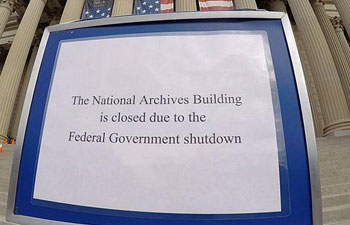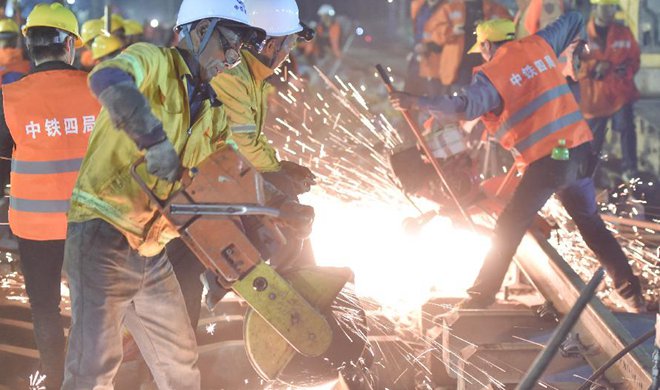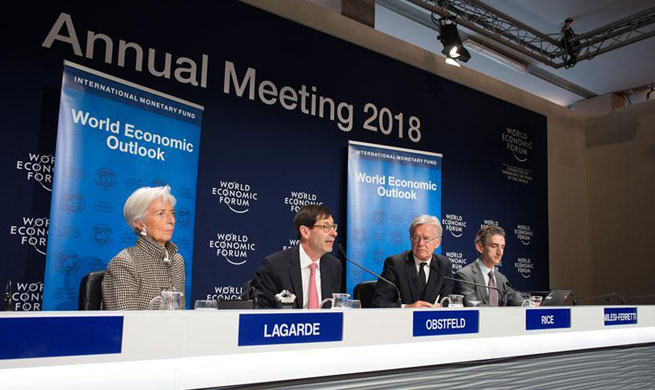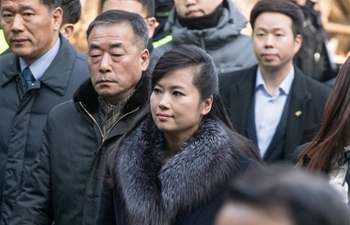WASHINGTON, Jan. 22 (Xinhua) -- U.S. President Donald Trump on Monday approved steep tariffs on imported washers and solar cells and modules, amid worries about intense trade frictions between the United State and its trading partners.
Trump will impose tariffs of up to 50 percent on imported washers for the next three years and of up to 30 percent on solar cells and modules for the next four years, said the Office of the United States Trade Representative in a statement on Monday.
The decision was based on the findings by the U.S. International Trade Commission that increased foreign imports of both products "are a substantial cause of serious injury to domestic manufacturers," the statement said.
The move marked the first time that the U.S. government has ever used the so-called Section 201, an outdated tool under a rarely used Trade Act of 1974, to unilaterally impose tariffs or other trade restrictions on foreign imports since 2001.
Chad Bown, a trade expert at the Peterson Institute for International Economics, a Washington-based think tank, said the move will also shatter any remaining uncertainty about Trump's "protectionist and anti-globalist inclinations."
"Such a decision could trigger a tsunami of new requests for trade barriers under this Section 201 law," Bown warned, adding that Trump's new import restrictions would result in higher consumer prices and fewer purchases, thus imposing costs on the U.S. economy.
The Solar Energy Industries Association (SEIA), the national trade association for the industry, on Monday expressed disappointment in Trump's decision, noting that solar tariffs would lead to the loss of roughly 23,000 American jobs this year and the delay or cancellation of billions of dollars in solar investments.
Abigail Ross Hopper, SEIA's president and chief executive, said tariffs in this case "will create a crisis in a part of our economy that has been thriving, which will ultimately cost tens of thousands of hard-working, blue-collar Americans their jobs."
Bown said solar trade restrictions might also slow the advance of U.S. climate mitigation industries and its clean-energy future, as increasing the domestic price of solar panels creates the incentive for utilities to switch to more carbon-intensive coal or natural gas.
South Korean washing machine makers Samsung on Monday called Trump's decision "a great loss for American consumers and workers."
"This tariff is a tax on every consumer who wants to buy a washing machine. Everyone will pay more, with fewer choices," Samsung said in a statement.
Analysts said Trump's decision is also likely to lead to legal challenges at the World Trade Organization, and invite foreign retaliation that could hurt U.S. exporting companies and their workers.

















